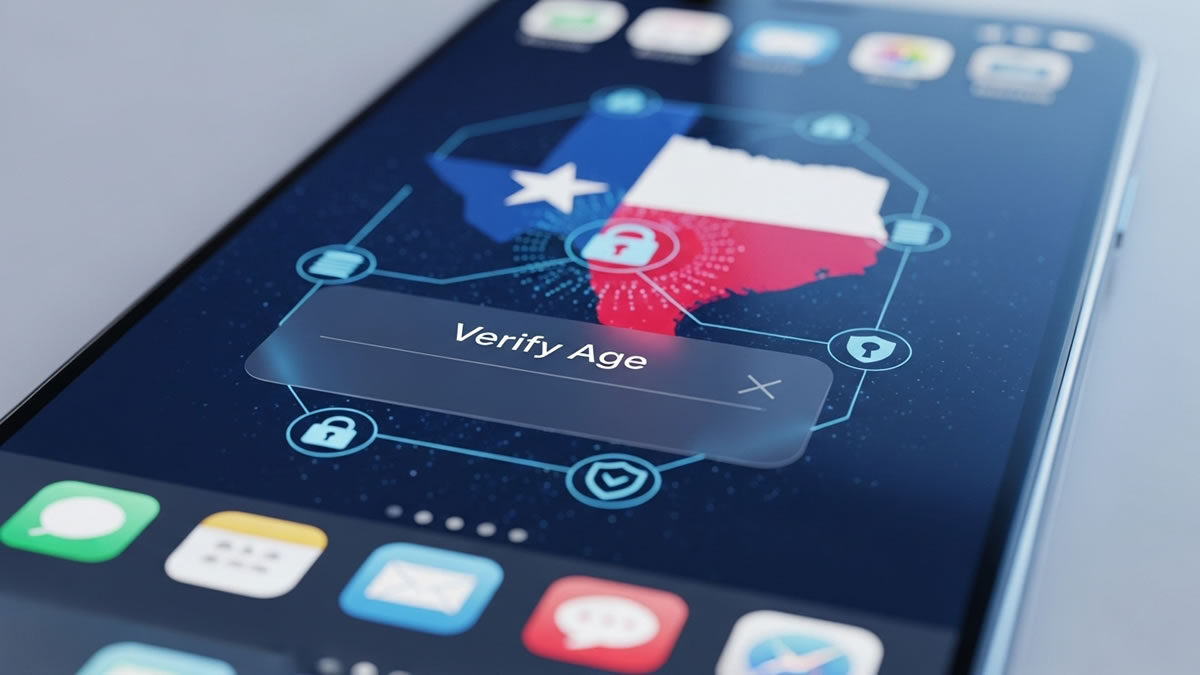Apple on Thursday revealed how it is implementing modifications to adhere to a Texas state regulation, SB2420, which introduces age verification requirements for app marketplaces and software creators.
Although Apple had already launched its own age verification technologies and features earlier this year in preparation for anticipated regulatory measures, the company raised concerns regarding the Texas law’s impact on user privacy.
Privacy Concerns
In a statement to developers, Apple elucidated that it was worried SB2420 could cooperation users’ privacy by needful the gathering of delicate, personally recognizable data for transferring any application, even if a separate entity merely wants to check humble info such as weather updates or sports scores. This concerns tourist attractions in the ongoing debate between privacy defense and government rule in the digital ecosystem.
Broader Legislative Context
The Texas regulation is one of multiple state-level measures being enacted across the United States due to the lack of comprehensive federal internet policies aimed at protecting minors online.
Stay up to date with the latest technology in TheTechCrunch, which covers artificial intelligence, mobile and web apps, modern things, cyber security, and general technical news. From AI’s successes to chat and generative tools, such as smartphones, laptops, and wearables’ special reviews, TheTechCrunch gives an insight into this case.

Consequently, individual states are introducing their own versions of legislation with similar goals but varying approaches. While these laws are designed to promote child safety, they also present new compliance challenges for developers and major technology companies alike.
Impact On Developers And Startups
Large companies like Apple have the financial and technical resources to comply with such legal obligations. However, smaller growth teams may face noteworthy steeplechases without Apple’s supportive gears. Many startups are already affected by these types of regulations. For example, the social media platform Bluesky had to restrict its services in Mississippi, citing a lack of resources to meet similar legal requirements.
Implementation Timeline
Once the Texas law takes active on January 1, 2026, Apple will need to confirm whether users located in TX are 18 years of age or older. Those under 18 will need to join a Family Sharing group overseen by parents or guardians. These guardians will be required to authorize every App Store download, purchase, and transaction made by minors using Apple’s in-app purchase framework.
Developer Support And New Tools
To align with the law, Apple announced that it will assist developers in determining users’ ages in a privacy-preserving manner. At present, developers can rely on Apple’s Declared Age Range API, which will be enhanced before the legislation takes effect to include more precise age group classifications for new Texas-based users.
Furthermore, Apple plans to present new APIs later this year that will allow developers to request parental endorsement whenever important app alterations alter its age score. Parents will also have the ability to remove consent at any time if they choose that an app is inappropriate for their child.
Expanding Compliance To Other States
Apple also cautioned developers that comparable regulations are set to be enacted in Utah and Louisiana later this year. The company encouraged developers to begin preparing now to ensure compliance once these state laws take effect.
Industry Reactions And Expert Opinions
The technology community has responded with a mix of support and criticism regarding Apple’s adaptation of Texas’s SB2420. Privacy advocates applaud Apple’s obligation to protect user data, emphasizing that privacy-provoking verification tools can specify new standards for compliance.
However, industry forecasters warn that common state-level legislation can lead to confusion in rules and create confusion for both designers and users. Experts claim that an unchanging national outline will better balance novelty, privacy, and child welfare without congestion of small technology businesses.
Economic Impact On The App Ecosystem
The enforcement of SB2420 is likely to transform the economy of the app industry, especially for smaller developers. Compliance costs, system upgrades, and further confirmation steps can increase working expenses.
Explore a complete hub for the latest apps, smart things, and security updates online, ranging from AI-operated solutions and automation tools. TheTechCrunch offers in-depth articles, comparisons, and specialist analysis designed to understand the rapidly changing technology. Whether you are keen on robotics, data protection, or the latest digital trends.

For large players like Apple, these costs are manageable, but for independent producer developers or start, they can stop originality and slow down app announcements. This shift can encourage cooperation or third-party services that specialize in compliance and verification, creating a new niche market within the technical ecosystem.
Rising Demand For Unified Regulations
With several states that adopt similar age confirmation and privacy laws, the pressure on federal legislators increases. Technology companies, legal groups, and decision makers ask for standardized federal legislation to simplify compliance throughout the country.
A uniform regulation can prevent duplication of effort, reduce costs, and provide even protection for users in all states. Apple’s implementation strategy can serve as a leading example for future national discussions on digital security and data protection.



One Response